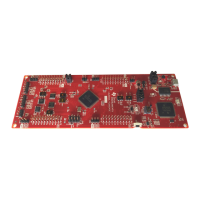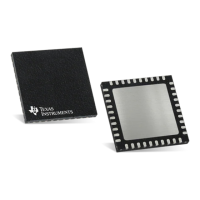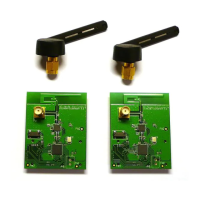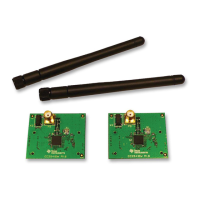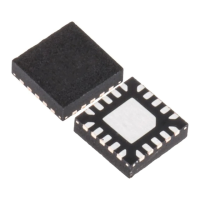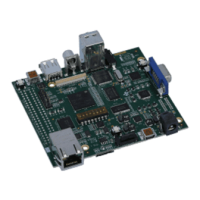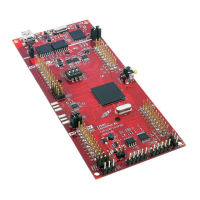Product Architecture for Management of Random Faults
www.ti.com
The HRPWM module enhances the resolution of the PWM control and provides unique calibration logic to
track the PWM modulation accuracy and input clock oscillator accuracy. The oscillator accuracy library
functions use the SFO libraries, which use the inherent calibration logic, to measure the accuracy of the
oscillator clock and PLL.
GPIO configuration registers are write-protected with special EALLOW instructions. Most of the GPIO
inputs have a programmable de-glitching filter to screen spurious noise or debouncing. This is especially
important for PWM output trip control signals, to avoid false tripping of PWM outputs.
The Control peripherals are complemented with three 32-bit CPU timers that can support time base
checks, and as redundant channels to implement timing checks.
Piccolo MCUs use industry standard communication ports such as: CAN, SCI, SPI, and I2C. These
peripherals are often available in multiple instantiations that allow 1oo2 voting schemes and internal loop
back paths that allow periodic serial data integrity checks.
Section 5 presents many of the functional safety diagnostics schemes that can be implemented to add
safety in each of these MCU functions during run time and power up state.
Analog Subsystem: Piccolo5x analog subsystem supports all the necessary analog sensing and
feedback channels. It has its own independent regulated power, oscillators, temperature sensor and PLL
clock. At runtime, it is synchronized and tightly coupled to the main CPU and control subsystems. Piccolo
MCU addresses the safety requirements of the operating clock redundancy with a minimum of two clocks
sources and an additional external clock source. There are two zero-pin oscillators operating in parallel,
OSC1 and OSC2, an additional on-chip crystal oscillator, and an external clock pin.
The oscillator clocks feed the on-chip watchdog module to provide time-out monitoring of time critical
loops. Device reset is offered through an external pin. This pin is a bidirectional pin allowing on-chip
watchdog reset to propagate to external devices. The reset input signal is always qualified with a
deglitching filter (about 200 ns) that helps to block reset line noise due to any electrical disturbance.
The dependencies of these clock domains and recovery mechanisms are presented in the Piccolo
technical reference manual (see Table 1). The on-chip regulator supports POR and BOR logic to generate
under voltage detection.
18
Safety Manual for C2000™ MCUs in IEC60730 Safety Applications SPRUHI3A–April 2013–Revised August 2013
Submit Documentation Feedback
Copyright © 2013, Texas Instruments Incorporated
